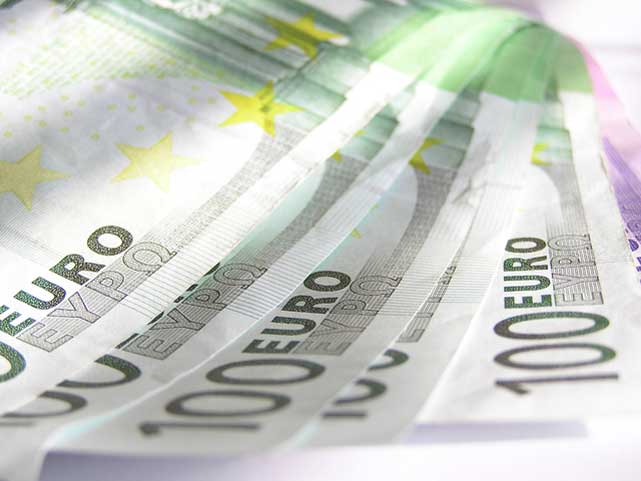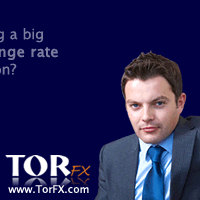Euro to Dollar Price Forecast: EUR/USD Hits 1.17 After Soft US Inflation
- Written by
Frank Davies

The Euro to Dollar (EUR/USD) exchange rate found strong support close to 1.1600 on Tuesday, advanced to just above 1.1650 after the latest US inflation data, and pushed higher to reach 1.1700 in Wednesday morning trading (UK time). The move reflects ongoing dollar softness following the CPI release and expectations for a Federal Reserve rate cut in September.
According to UoB; “EUR has likely entered a consolidation phase. For the time being, we expect EUR to trade between 1.1540 and 1.1685.”
Scotiabank added; “The medium-term range is bound between support just below 1.14 and resistance in the lower 1.18s. We see a near-term range bound between 1.1550 support and 1.1680 resistance.”
Danske Bank has a 12-month EUR/USD target of 1.23 on dollar losses.
US consumer prices increased 0.2% for July, but the year-on-year inflation rate held at 2.7% compared with consensus forecasts of a small increase to 2.8%.
Core prices increased 0.3%, in line with expectations while the annual rate increased to 3.1% from 2.9% and slightly above expectations of 3.0%.
There was a stronger increase for the super-core rate.
According to Scotiabank; “Inflation remains pernicious—a Bloomberg’s “Cheeseburger Index” reflects persistent price gains so far this year, suggesting heightened pressure on low-income households—but the Fed may have to balance that against signs that the US labour market is slowing as it considers its policy settings in September.”
Following the data, markets were even more confident that the Fed would cut interest rates at the September meeting.
Markets will also expect another barrage of criticism of Fed policy from President Trump and US Administration officials, especially given the headline inflation figure.
MUFG commented on the US inflation profile; “Recent trade deals have helped to dampen upside risks to US inflation through the rest of this year at least compared to initial fears when the Liberation Day tariff announcements were made in early April.”
A further 90-day extension to the US-China trade truce will also help curb
Commerzbank commented; “How the relationship between inflation and the US dollar develops further remains to be seen and will depend not least on how often and how strongly Donald Trump and his administration feel compelled to comment on the Fed's monetary policy."
The German ZEW economic sentiment index dipped to 34.7 for August from 52.7 the previous month and below consensus forecasts of 39.5 while the current conditions component also deteriorated on the month.
According to the ZEW; “Financial market experts are disappointed from the announced EU–US trade deal. In August 2025, the ZEW indicator experiences a substantial decline, also due to the poor performance of the German economy in the second quarter of 2025.”
ING noted that markets will also continue to monitor geo-political considerations. It noted; “Also contributing could be Trump’s attempt to downplay expectations for Friday’s summit with Putin, calling it a “feel-out meeting” to gauge Russia’s demands, and adding “that’ll be the end” if no agreement is reached. Markets had possibly priced in a slightly more optimistic stance on a quicker resolution.”
STORY LINK Euro to Dollar Price Forecast: EUR/USD Hits 1.17 After Soft US Inflation

The Euro to Dollar (EUR/USD) exchange rate found strong support close to 1.1600 on Tuesday, advanced to just above 1.1650 after the latest US inflation data, and pushed higher to reach 1.1700 in Wednesday morning trading (UK time). The move reflects ongoing dollar softness following the CPI release and expectations for a Federal Reserve rate cut in September.
According to UoB; “EUR has likely entered a consolidation phase. For the time being, we expect EUR to trade between 1.1540 and 1.1685.”
Scotiabank added; “The medium-term range is bound between support just below 1.14 and resistance in the lower 1.18s. We see a near-term range bound between 1.1550 support and 1.1680 resistance.”
Danske Bank has a 12-month EUR/USD target of 1.23 on dollar losses.
US consumer prices increased 0.2% for July, but the year-on-year inflation rate held at 2.7% compared with consensus forecasts of a small increase to 2.8%.
Core prices increased 0.3%, in line with expectations while the annual rate increased to 3.1% from 2.9% and slightly above expectations of 3.0%.
There was a stronger increase for the super-core rate.
Save on Your EUR/USD Transfer
Get better rates and lower fees on your next international money transfer. Compare TorFX with top UK banks in seconds and see how much you could save.
Following the data, markets were even more confident that the Fed would cut interest rates at the September meeting.
Markets will also expect another barrage of criticism of Fed policy from President Trump and US Administration officials, especially given the headline inflation figure.
MUFG commented on the US inflation profile; “Recent trade deals have helped to dampen upside risks to US inflation through the rest of this year at least compared to initial fears when the Liberation Day tariff announcements were made in early April.”
A further 90-day extension to the US-China trade truce will also help curb
Commerzbank commented; “How the relationship between inflation and the US dollar develops further remains to be seen and will depend not least on how often and how strongly Donald Trump and his administration feel compelled to comment on the Fed's monetary policy."
The German ZEW economic sentiment index dipped to 34.7 for August from 52.7 the previous month and below consensus forecasts of 39.5 while the current conditions component also deteriorated on the month.
According to the ZEW; “Financial market experts are disappointed from the announced EU–US trade deal. In August 2025, the ZEW indicator experiences a substantial decline, also due to the poor performance of the German economy in the second quarter of 2025.”
ING noted that markets will also continue to monitor geo-political considerations. It noted; “Also contributing could be Trump’s attempt to downplay expectations for Friday’s summit with Putin, calling it a “feel-out meeting” to gauge Russia’s demands, and adding “that’ll be the end” if no agreement is reached. Markets had possibly priced in a slightly more optimistic stance on a quicker resolution.”
International Money Transfer? Ask our resident FX expert a money transfer question or try John's new, free, no-obligation personal service! ,where he helps every step of the way, ensuring you get the best exchange rates on your currency requirements.
TAGS: Euro Dollar Forecasts
Comments are currrently disabled
Related Stories:
- Euro to Dollar Forecast: EUR/USD Swings as Markets Reprice the Fed - February 9, 2026
- Euro to Dollar Forecast: Fed Credibility Tested as EUR/USD Volatility Surges - February 2, 2026
- Euro to Dollar Forecast: EUR/USD Rally Tests Dollar’s Safe-Haven Status - January 26, 2026
- Euro to Dollar Forecast: Can EUR/USD Break Higher as Fed Risks Grow? - January 19, 2026
- Euro-to-Dollar Forecast: EUR/USD Pressured as Markets Reassess Fed Cuts - January 12, 2026
- Euro-to-Dollar Forecast: Will EUR/USD Repeat 2025’s Strong Start? - January 6, 2026
- Euro to Dollar Exchange Rate 2025 REVIEW: EUR/USD Up Sharply in 2025 - December 29, 2025
- Euro to Dollar Forecast: EUR/USD Near 1.18 as Fed Outlook Dominates - December 27, 2025
- Euro to Dollar Forecast: Near-Term EUR/USD Driven by Fed Outlook - December 22, 2025
Latest News:
- Pound to Dollar Exchange Rate Forecast: Consolidation Above 1.3600 - February 13, 2026
- GBP to EUR Forecast: Soft UK GDP Caps Pound Below 1.15 - February 13, 2026
- Pound to Euro Stalls - February 12, 2026
- GBP/USD Forecast: Pound Sterling Resilient as Markets Turn Risk-Positive - February 12, 2026
- Pound to Dollar Forecast: Strong US Payrolls Cap GBP Below 1.37 - February 12, 2026
- British Pound to Euro Forecast: March BoE Cut Priced In After GDP Miss - February 12, 2026
- Pound to Euro Rises on Ukraine Tensions - February 11, 2026
- GBP/USD Forecast: Pound Sterling Retreats After Upbeat US Jobs Report - February 11, 2026
- Pound to Dollar Forecast: GBP Above $1.37 Ahead of High Risk NFP - February 11, 2026
- British Pound to Euro Forecast: GBP Rebound as Starmer "Avoids Exit" - February 11, 2026









